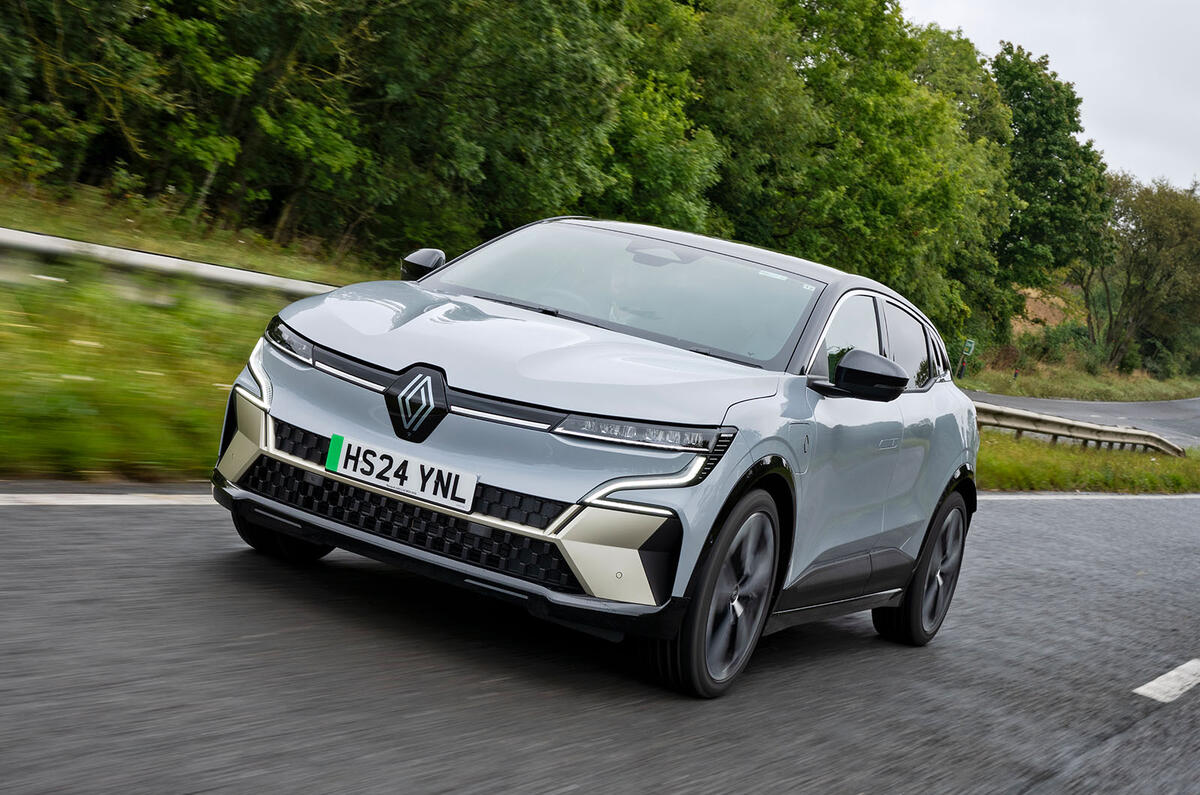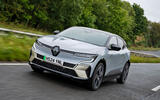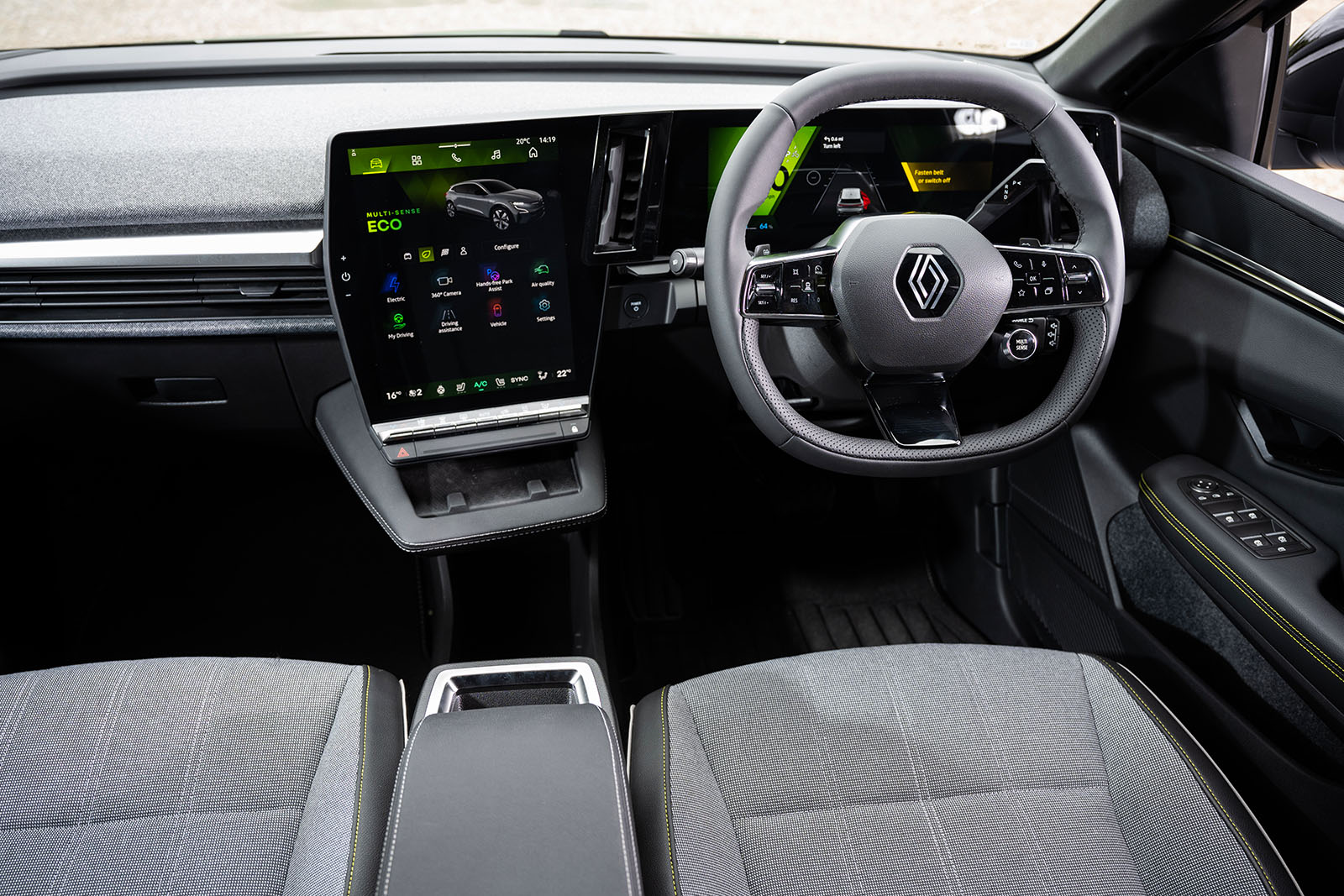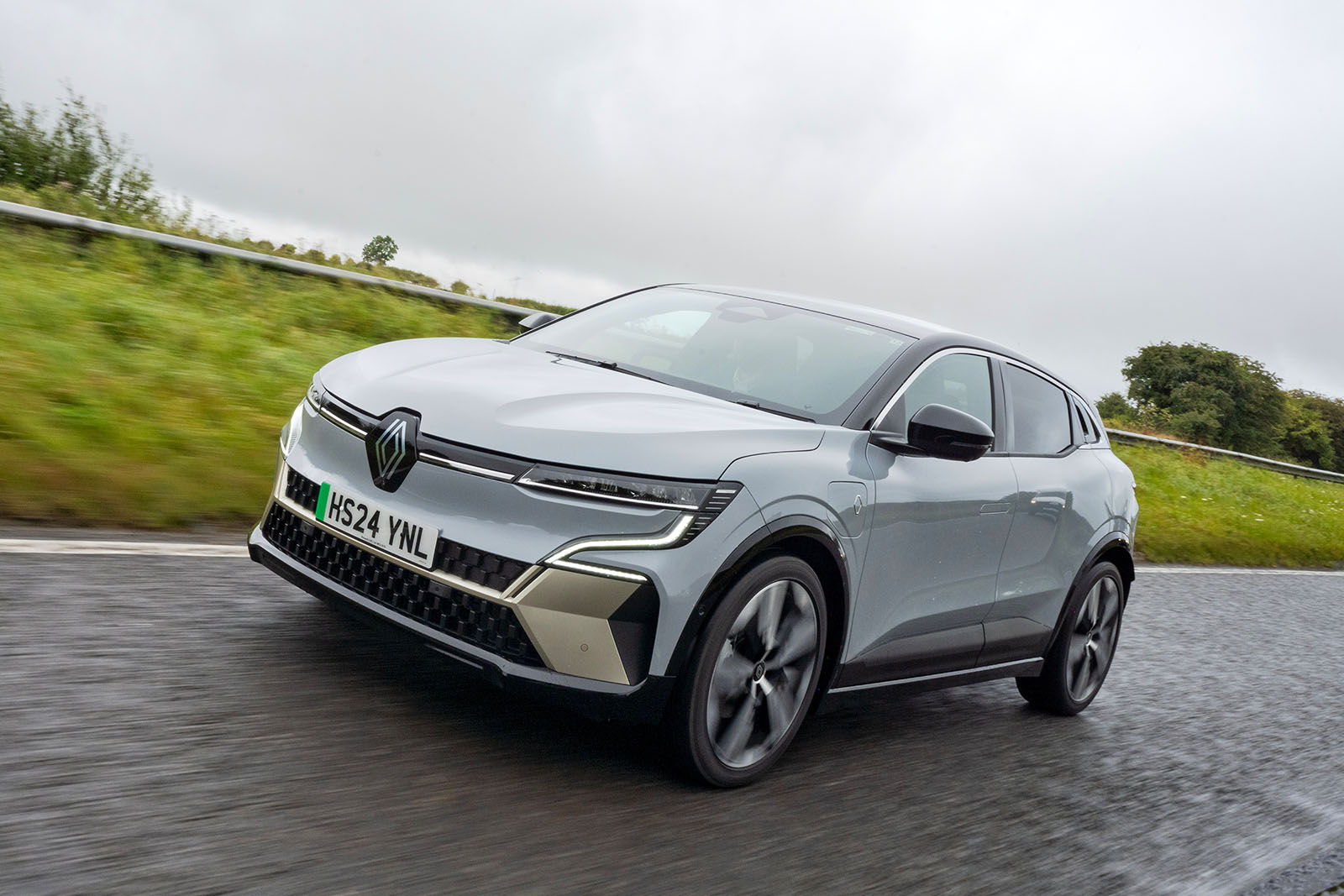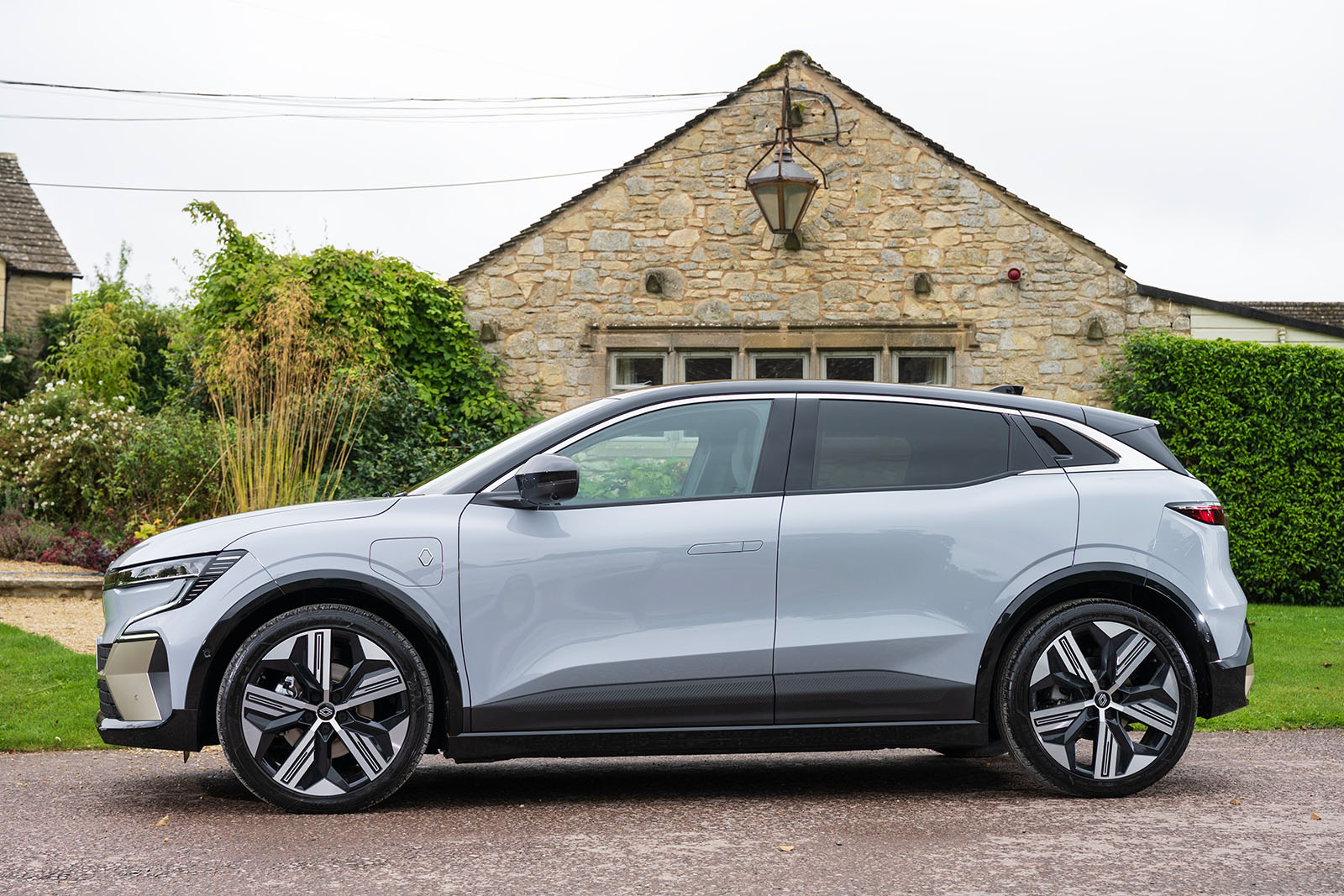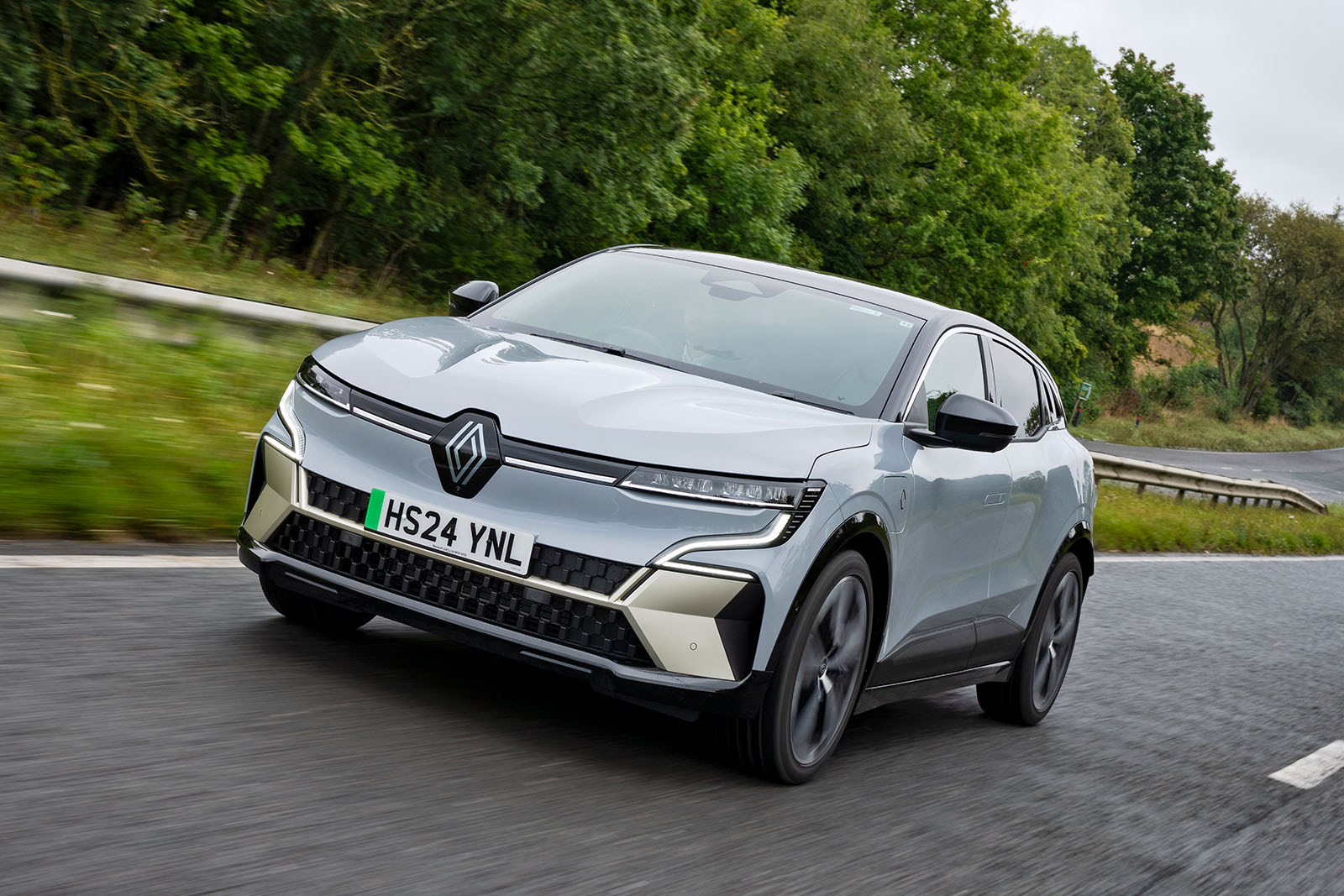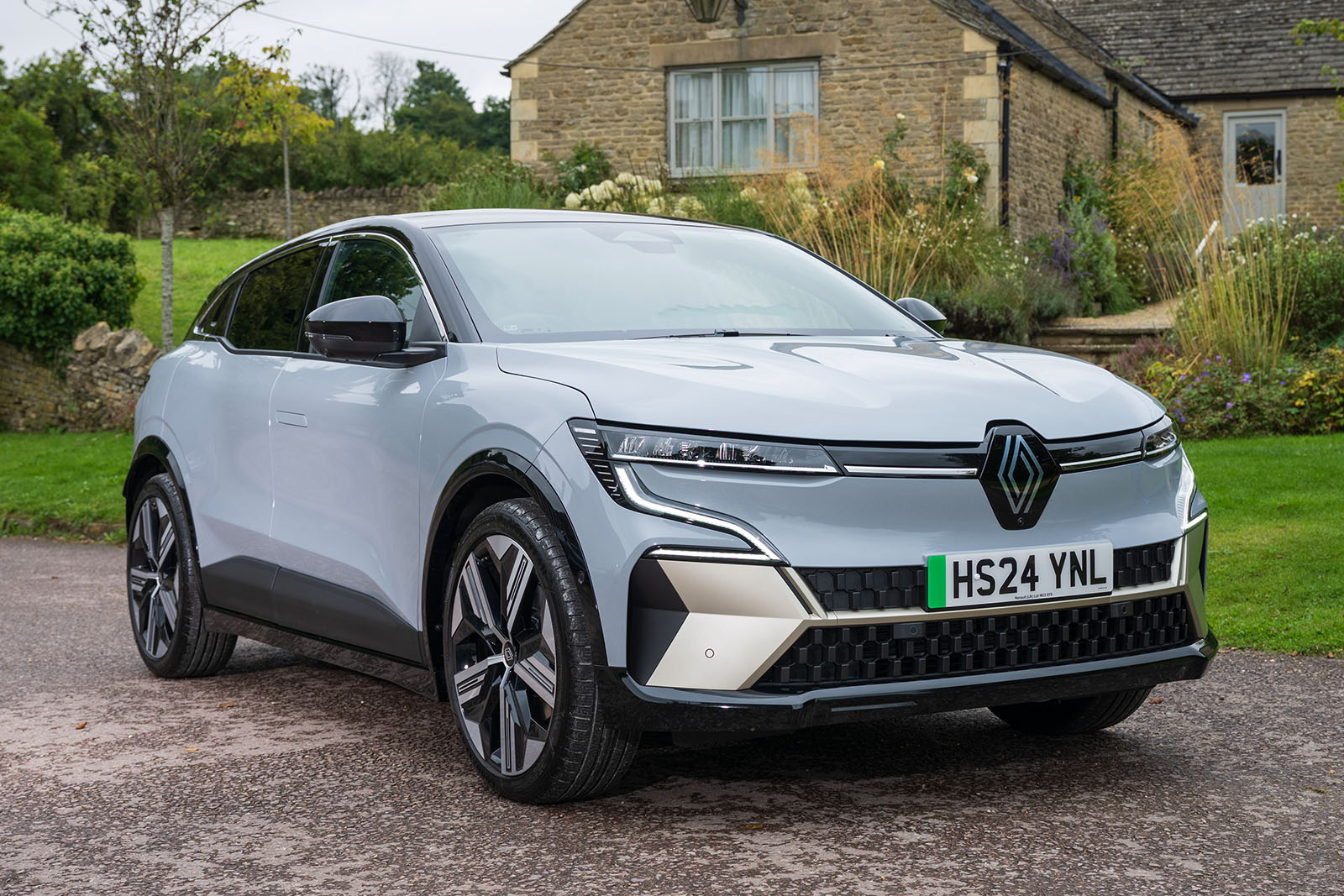The biggest change in here over the pre-facelift car comes with regard to the infotainment screen. As standard, you get a 12.0in infotainment display coupled to a 12.3in digital instrument cluster. The infotainment runs Renault's OpenR Link software which integrates the Google ecosystem.
The system is different from Android Auto smartphone mirroring (Renault’s system still gives you that option, as well as Apple CarPlay), because the whole system runs Google’s maps, voice assistant and more, and you can download additional apps like Spotify from an app store. At the same time, it all integrates with the car’s other systems, so Google Maps can show you how much charge you will have left at your destination and display directions in the gauge cluster.
It mostly works well, it responds quickly and the layout is fairly intuitive. What's more, despite it being three inches larger than before, its low mounting means it never intrudes on your view out.
Unfortunately, however, because the car's body design is unchanged, issues with visibility are still there, the tiny rear window joined by B and C pillars thick enough to introduce significant over-shoulder blindspots at junctions.
The Mégane pulls one back, however, with regard to the amount of space on offer inside. Despite being quite a lot smaller on the outside, the Mégane has a bigger boot than the Cupra Born (440 litres plays 385 litres), and gets close to the Kia Niro EV’s (475 litres). It also beats the MG 4 (363 litres) because with the electric motor up front, the boot can be a lot deeper, with an additional 33-litre cubby under the floor for cable storage.
The boot’s depth is a downside, however, because it makes the loading lip very high and creates a big step when the rear seats are folded. A variable-height floor could have solved this issue, but this isn’t even available as an option.
The rest of the passenger compartment isn’t quite as roomy as rivals’. Its 685mm of rear leg room can’t match the Cupra’s 750mm or the Kia’s 760mm, but is still close to average for a hatchback of this size. Head room is about par, too.
Up front, meanwhile, you’re welcomed by a mostly well-considered driving environment. There is ample storage space in the centre console with dividers that can be moved to create more space or an additional cupholder. Moreover, the front seats are very comfortable and there is a lot of adjustment in the steering column.
The glossy finish makes the controls on the steering wheel look like the haptic type, but they are real buttons. The forest of column stalks also poses no problems.
It’s a little disappointing that the big digital gauge cluster doesn’t offer more customisation options. You can scroll through a handful of slick-looking configurations, but none of them makes especially good use of the available screen real estate. For instance, you can’t have the power/regen gauge and the map on screen at the same time.
The materials Renault has used are an oddly mixed bag. The fabric on the seats and dash gives a homely, lounge-like ambience, the synthetic leather on the steering wheel feels as good as the real thing and soft-touch material lines the door panels.
But the door cappings, where you might rest your arm, are rock hard, as is the dashboard’s ‘chin’ that contains the wireless charging pad for your phone. While the strip of Alcantara on the doors is nice enough, it doesn’t match anything else in the interior. Renault hasn’t exactly cheaped out on the interior, but one gets the impression the different interior designers weren’t talking to each other.



